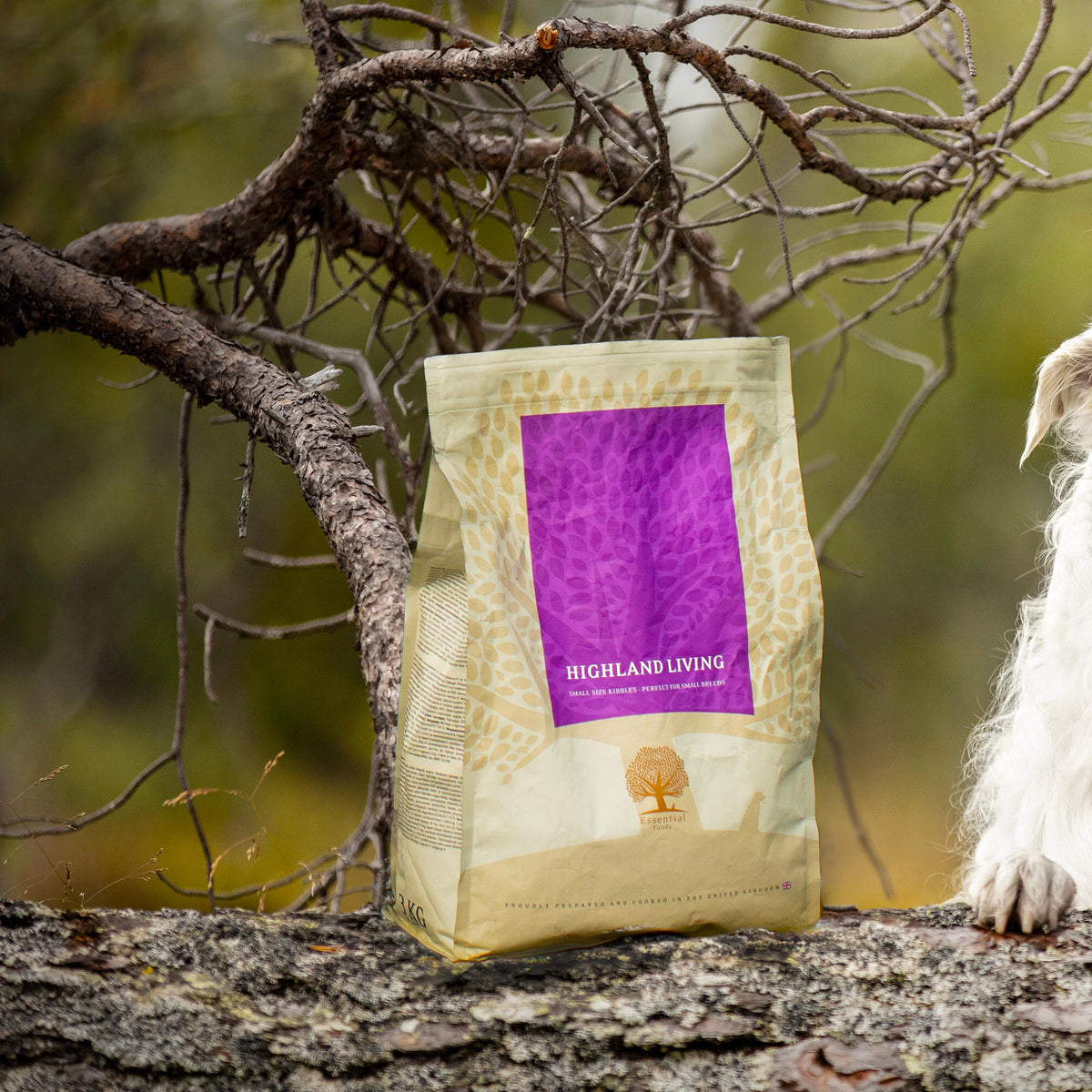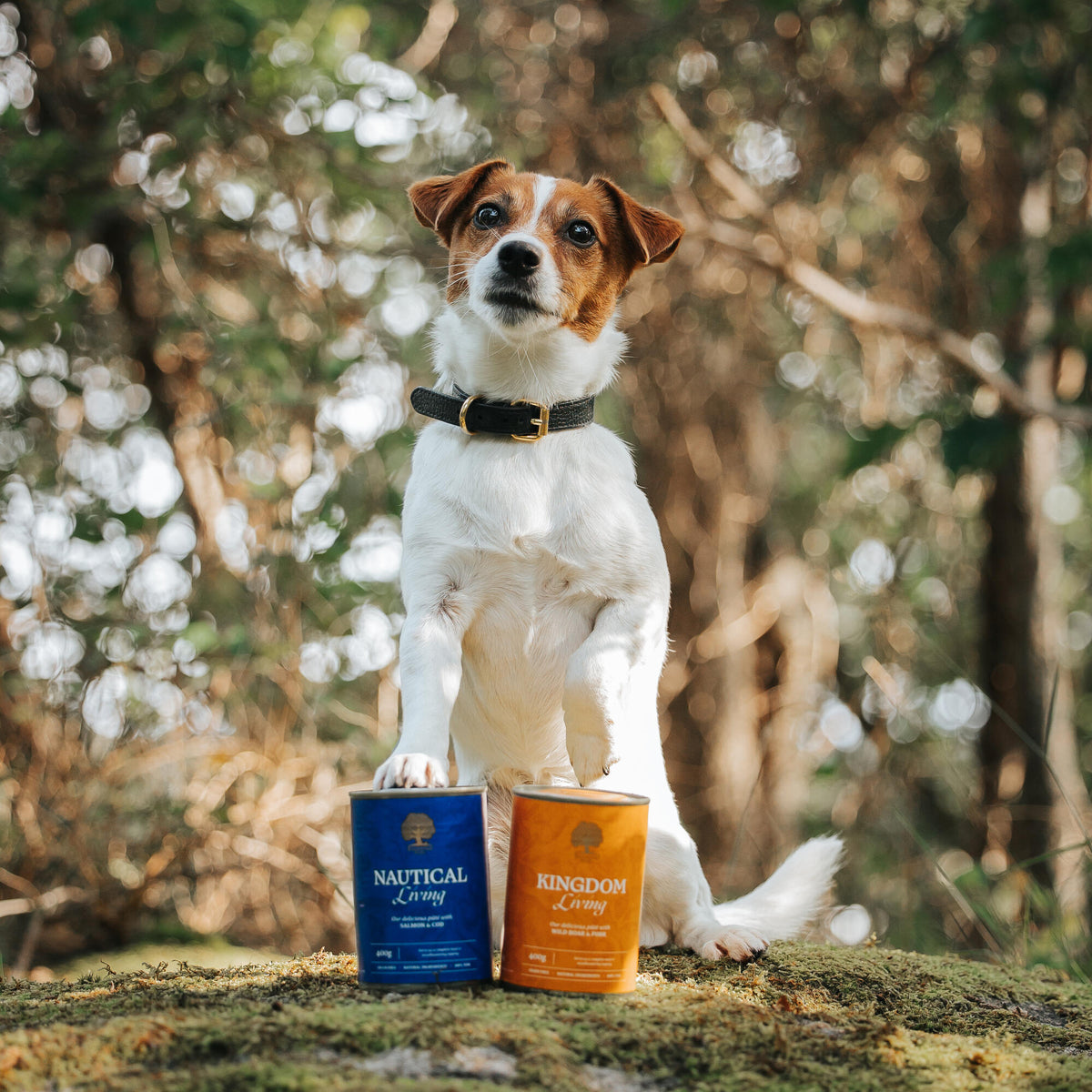Your Cart is Empty

When our beloved canine companions fall ill, it's natural to want to provide them with the best possible care, including the right nutrition to aid in their recovery. In this comprehensive guide, we'll delve into the question, "What food is good for a sick dog?" and explore the benefits of grain-free dog food, natural dog food, and puppy food. We'll also draw a conclusion on why Essential Foods stands out as the optimal choice for nurturing a sick dog back to health.
Sick dogs have unique nutritional requirements, which vary depending on the severity and nature of their illness. Whether they're experiencing gastrointestinal upset, recovering from surgery, or managing a chronic condition, proper nutrition is essential for supporting their recovery and overall well-being.
Grain-free dog food has gained popularity in recent years due to its potential benefits for dogs with food sensitivities or allergies. By eliminating grains such as wheat, corn, and soy, these diets reduce the risk of triggering adverse reactions and provide a hypoallergenic option for sick dogs. Additionally, grain-free dog food formulas often contain alternative carbohydrate sources like sweet potatoes or peas, which can be easier for dogs to digest.
Natural dog food is formulated with high-quality, minimally processed ingredients, free from artificial additives and preservatives. These diets prioritize wholesome ingredients that closely resemble what dogs would eat in the wild, making them an excellent choice for sick dogs in need of nutritious, easily digestible meals. By opting for natural dog food, pet owners can provide their sick dogs with the essential nutrients they need to support their recovery and promote overall well-being.
For sick puppies, selecting the right puppy food is crucial for supporting their growth and development while aiding in their recovery from illness. Puppy food is specially formulated to meet the unique nutritional needs of growing puppies, providing a balance of essential nutrients for healthy development. By choosing a high-quality puppy food, pet owners can ensure that their sick puppies receive the nutrients needed to thrive, even during challenging times.
In conclusion, selecting the right dog food for a sick dog is essential for supporting their recovery and promoting overall health and well-being. Essential Foods emerges as the best choice, offering a range of grain-free dog food, natural dog food, and puppy food options formulated with quality ingredients, high meat content, bioavailable nutrients, and palatability. By choosing Essential Foods, pet owners can provide their sick dogs with the nutrition they need for a speedy recovery and a happy, healthy life.
Consider Your Dog's Specific Needs: Each dog is unique, and their nutritional requirements may vary based on factors such as age, breed, weight, and health condition. Consult with your veterinarian to determine the best diet for your sick dog.
Look for Grain-Free dog food Options: Grain-free dog food can be beneficial for dogs with food sensitivities or allergies. These formulas eliminate common allergens like wheat, corn, and soy, reducing the risk of adverse reactions and promoting better digestion.
Check the Ingredient List: Opt for dog foods with high-quality, natural ingredients. Look for real meat as the first ingredient and avoid artificial additives, preservatives, and fillers.
Consider Alternative Protein Sources: If your dog has allergies or sensitivities to common protein sources like chicken or beef, consider grain-free dog foods with alternative protein sources such as fish, duck, or venison.
Assess Digestibility: Choose dog food that is easy for your sick dog to digest. Grain-free dog food formulas with easily digestible ingredients like sweet potatoes, peas, and lentils can help prevent gastrointestinal upset and promote better nutrient absorption.
Monitor for Food Sensitivities: Keep an eye on your dog's response to their food. If you notice any signs of food sensitivities or allergies, such as itching, diarrhea, or vomiting, consult with your veterinarian to adjust their diet accordingly.
Consider Wet vs. Dry Food: Depending on your dog's preferences and health condition, you may opt for wet or dry grain-free dog food. Wet food can be more palatable for picky eaters or dogs with dental issues, while dry food may be more convenient for storage and feeding.
Introduce New Foods Gradually: When transitioning your sick dog to a new diet, do so gradually over several days to avoid digestive upset. Mix small amounts of the new food with their current food, gradually increasing the proportion of the new food over time.
Monitor Your Dog's Weight and Condition: Keep an eye on your dog's weight and overall condition while on their new diet. Adjust portion sizes as needed to maintain a healthy weight and address any changes in their health or appetite promptly.


